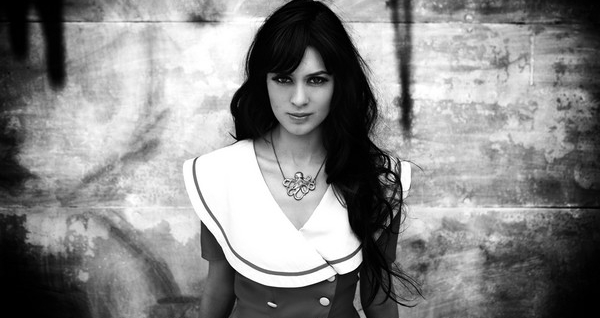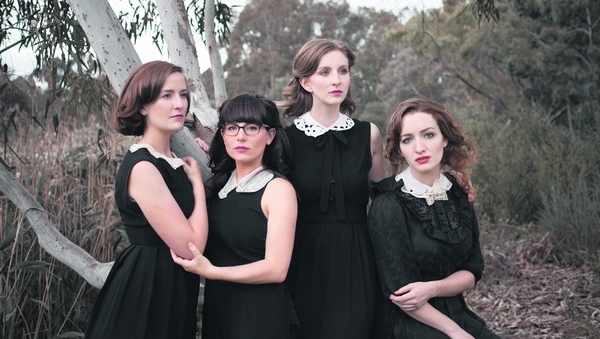While each of Simon’s releases explore a different flavour, the idea of the concept album seems to have dropped out of vogue to a certain extent these days. So when Simon reflects on the shape of her music thus far, you get the sense the concept album is pretty far from her thoughts.
“It’s a very strange thing,” she says. “The songs always happen in a very different way. A lot of the time things just come together, and it appears to me very suddenly that I’m writing about a certain theme. For example, with Vegetal, I started to write completely freely, without any theme, and after around four songs there was the name of a flower in every song. So I just started calling the folder on my computer Vegetal, because it seemed to be the link, which then inspired new songs that were really playing with the theme. So sometimes it’s real organic, it’s not me deciding on something and then I’ll write about it. The songs come that way, and they kind of put me on the track, and then it’s a lot like working out a puzzle until you figure out where you’re going.”
While ‘puzzling’ is not entirely the word to describe Mue – which translates, rather appropriately, to ‘morph’ – there’s certainly a level of pleasant ambiguity to the record, chiefly due to the fact the majority of it is in French. Simon says the ideas translate.
“There’s not really a language barrier. I feel like my music is not really built [as much] on lyrics as it is on the sound, on the production and melody – it’s something that is beyond language. Sometimes it doesn’t even seem to matter if it’s in French or English. It’s a whole – it’s not just about words, it’s about a whole poetical world. The language is a part of it, of course, but the melody and voice are the main elements, are always the core. All the sounds, the environment in a song are important – a little bit like a movie, something that you experience as a whole. Sometimes people get it, even if they don’t understand it. And my music isn’t really telling a narrative story, so it’s very poetic. Even if you understand French, it’s more about poetic images, it’s very visual.”
An exception to this is the sweetly sad The Eye Of The Moon. It’s an evocative song with its feet planted firmly in folk, but adding to the accessibility is the fact it’s sung in English and written by British speculative fiction author Graham Joyce. There’s an added poignancy to the song, given very recently Joyce passed away aged 59.
“I’m glad to talk about these beautiful lyrics, because Graham actually just passed away last week,” says Simon. “It’s very sad. He wrote songs for me in English. We met years ago and collaborated on a few songs for The Big Machine and Franky Knight. The Eye Of The Moon is something he sent me for Christmas, and he said, ‘I wrote that for you, and one day perhaps it will become a song.’ So, it was a present. I had this melody in mind that I thought was quite beautiful, and when I got the lyrics it made sense, they fit in perfectly. It’s a very powerful song onstage, and even on the album it’s one of my favourites.”
Suffice it to say, throughout Mue there’s great variety and much room for interpretation. Like a choose-your-own-adventure story, the precise shape of the song is left up to the individual to determine. Meaning can be teased from the lyrics, or the tone alone can conjure subjects unique to the listener. This is a characteristic that can perhaps be applied to Simon’s entire body of work, and that’s the way she would like it to remain.
“I create something, and I give it to the world. From there, it has its own destiny, and I like the fact that people understand something differently; I like the fact that everyone has their own interpretation. I love the fact that some people don’t even want to know what I’m talking about – it’s true! It happened to me as a child. I wasn’t speaking fluent English, but I was listening to so many English and American songwriters, and it didn’t matter. I didn’t need to know what they were saying; to me it was magical. It was like making your own story, or like reading a book and then seeing the movie. Maybe you’ll be disappointed, because your movie was better.”
She laughs. “I like to see things that way. I like the fact that not everyone will understand the language and get what’s going on, that instead it’s completely conceptual. I love that.”
BY ADAM NORRIS

